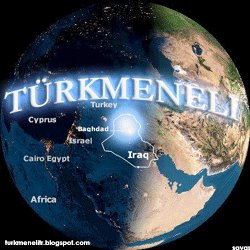Wednesday February 15, 2006 1:01 AM
By PAUL GARWOOD
Associated Press Writer
BAGHDAD, Iraq (AP) - Kurdish political chiefs led by President Jalal Talabani warned Shiite leaders Tuesday that a deal on the oil-rich northern city of Kirkuk would be their key demand in talks on forming the country's next government.
Kurdish, Shiite and Sunni Arab leaders met in the most intensive discussions over the next government since Prime Minister Ibrahim al-Jaafari narrowly won a ballot last week to be the dominant Shiite alliance's candidate to retain the premiership.
Talabani also met with al-Jaafari's coalition ally, top Shiite political leader Abdul-Aziz al-Hakim, whose candidate to be the next premier, Vice President Adil Abdul-Mahdi, lost by one vote to al-Jaafari.
Talabani said his Kurdish coalition's key demand in the government talks concerned Kirkuk, particularly implementation of the constitution's Article 136, which calls for a census to be held there followed by a referendum on whether it should be part of the Kurdish self-ruled Kurdistan region.
``The Kurdish Coalition has no demands except those which are known by everyone regarding the need to implement Article 136 of the constitution ... considering Kirkuk,'' a statement released by Talabani's office said.
Prominent Kurdish politician Mahmoud Othman said the constitution's Kirkuk clause is ``nonnegotiable.''
However, Arabs and Turkomen oppose the Kurds taking sole control of Kirkuk, the center of Iraq's vast northern oil fields. Control of Kirkuk is among the most intractable issues facing Iraq because of the conflicting ethnic claims.
Al-Jaafari, meanwhile, vowed Tuesday to work in ``accordance with the constitution'' and maintain his ``good, long and deep relations with the Kurds,'' particularly Talabani. The two have often been at odds over various issues.
Kurds complain that al-Jaafari's outgoing government failed to honor promises about the status of Kirkuk. Saddam Hussein deported tens of thousands of Kurds from the Kirkuk area and replaced them by Iraqi Arabs.
Talabani also said he wants the next government to include the Iraqi National List of former premier Ayad Allawi, who has close ties with the United States and has been touted as a possible interior minister.
Sunni Arabs oppose hard-line Shiites like current minister Bayan Jabr claiming the Interior Ministry amid accusations Shiite-led security forces have been killing and kidnapping Sunnis in a wave of sectarian violence.
But some Shiite leaders, including allies of radical cleric and al-Jaafari ally Muqtada al-Sadr, also oppose Allawi taking a senior government post, seeing it as a ``red line'' issue. Al-Sadr supporters reject Allawi because he directed Iraqi security forces in campaigns against al-Sadr militiamen in Najaf and eastern Baghdad in 2004 and early 2005.
But in his talks with Talabani, al-Hakim said there were no ``red lines'' on any bloc taking part in the government, a reference to Allawi's group.
The U.S. wants Iraq's various political groups to form a national unity government that gives key positions to Sunni Arabs, who form the backbone of the raging insurgency. Sunni satisfaction with the political process is seen as a way to end the violence.
Much of the battle over the new government will come down to numbers. Talabani's coalition has tapped him to take the presidency again, but he needs two-thirds of the 275-seat parliament to support his nomination.
Al-Jaafari's alliance holds 130 seats, not enough to form a government on its own. The Kurds, Allawi's list and a Sunni Arab bloc hold a total of 133 seats. Any government will be approved only after intense bartering.
Under the constitution, the new president calls on the largest bloc's candidate for prime minister - that being al-Jaafari - to form a Cabinet, which requires a simple majority of the assembly to be approved.
The U.N. Security Council on Tuesday welcomed the final results of the Iraqi election and called on political leaders to form ``a fully inclusive government'' that will strive to build a democratic and united country.
The council condemned acts of terrorism in Iraq and urged those who continue to use violence ``to lay down their arms.'' It said terrorist acts ``should not be allowed to disrupt Iraq's political and economic progress.''
